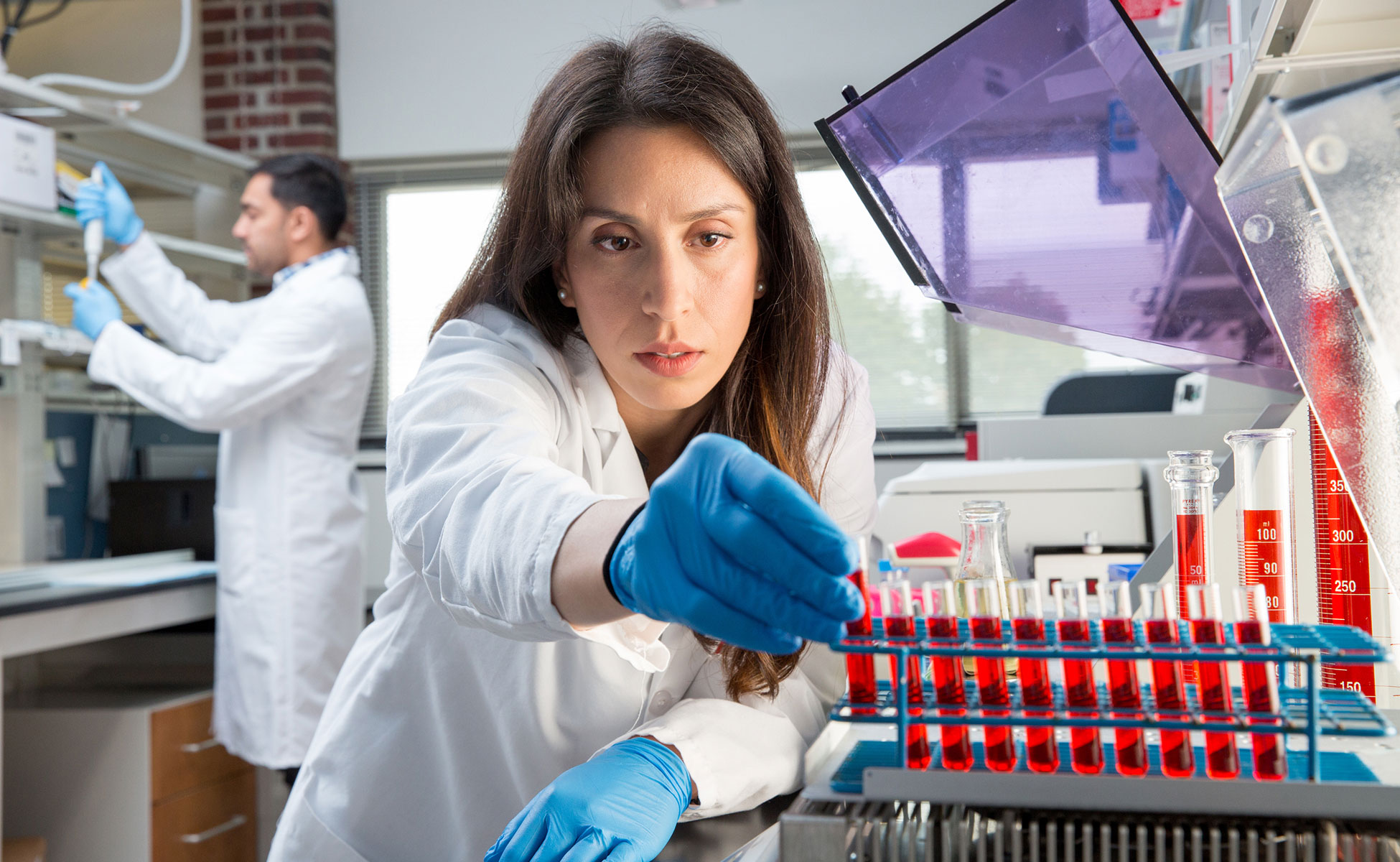The GSBMS Ph.D. programs, as well as a joint M.D.-Ph.D. program, in six biomedical disciplines are intended for students dedicated to advanced research, scientific discovery, and mastery of the discipline. Ph.D. graduates often work as senior and supervisory research scientists in labs across scientific industries, become professors where they conduct research in academia, or use their critical analysis skills as scientific writers and policy experts.
Ph.D. Program Disciplines
We offer six specialized Ph.D. programs in the biomedical sciences, each focused on a separate discipline. All programs use a multidisciplinary approach, so you’ll become familiar with additional areas of scientific inquiry as they relate to your specialization.
GSBMS Stories
Uncovering an Early Driver of Pulmonary Arterial Hypertension
New NYMC Research Identifies EP300 as a Key Regulator of Blood Vessel Damage, Opening the Door to Earlier Detection and Intervention
How to Enter the Ph.D. Program
Advanced Standing
You can apply to enter the Ph.D. program with advanced standing after completing one of our discipline-based master's programs or the Two-Year Interdisciplinary Biomedical Sciences program. Advanced Standing means you can enter the Ph.D. program with the majority of your didactic credits already complete. To enter the program, you must submit a formal application and find a lab to support your research.
Joint M.D.-Ph.D. Program
The joint M.D.-Ph.D. program is for research-driven students who want to graduate with both of these advanced degrees and pursue a career as a physician-scientist. A physician-scientist is a unique career path where a major component of your career is engaged in research, whether at a medical research center or in academia. While most physician-scientists do engage in some clinical work, they typically won’t be focused on patient care full time. Understanding medicine from both a clinical and research perspective is advantageous when involved in clinical trials.
Only current medical students at the School of Medicine (SOM) are admitted for entry into this competitive program. The Ph.D. component of study begins in July following the end of your second year, with classes starting in August.
Students are not formally admitted to the Ph.D. program until they have successfully completed all preclinical coursework of the medical curriculum and Step I of the U.S. Medical Licensing Examination (USMLE). If you’re interested in this intensive program, it’s important to meet with the program director (libor_velisek@nymc.edu) early on to discuss. You must submit a formal application and find a lab to support your research.
The number of required didactic course credits for your Ph.D. is lower in the joint degree program. Find all program details and requirements on our M.D.-Ph.D. Program page.
Part-Time Ph.D. Option for Industry Professionals
The GSBMS offers a part-time Ph.D. track tailored for industry professionals who wish to advance their research training while maintaining their careers. This option is designed for individuals with a solid background in biomedical sciences and research experience in industrial, clinical, or government settings. Part-time students complete the same rigorous coursework and dissertation requirements as full-time Ph.D. candidates but on a flexible schedule that allows them to continue working full-time. Funding for part-time study is provided either through employer sponsorship or personal resources; prospective students are expected to secure a dissertation advisor who agrees to support their proposed research project before submitting an application.


